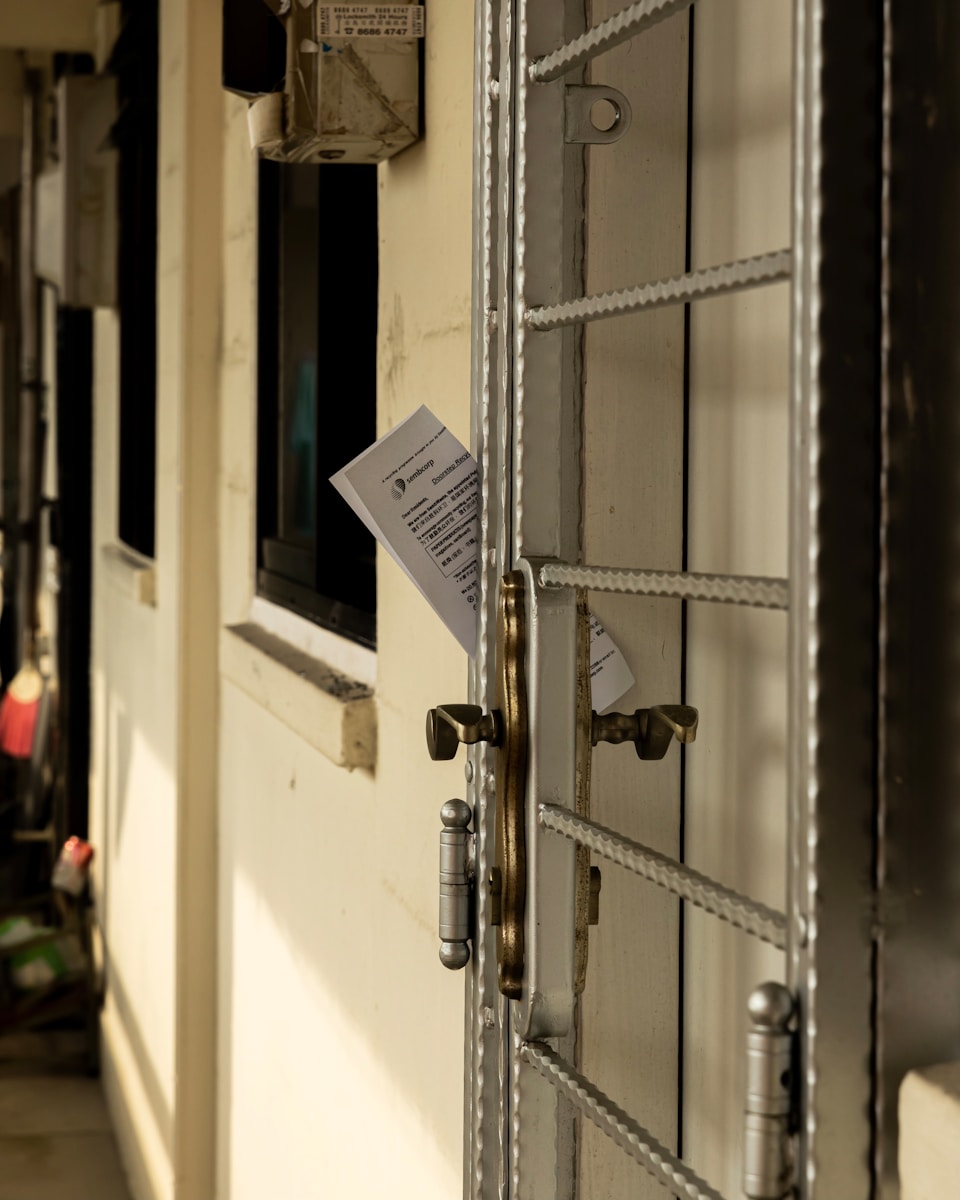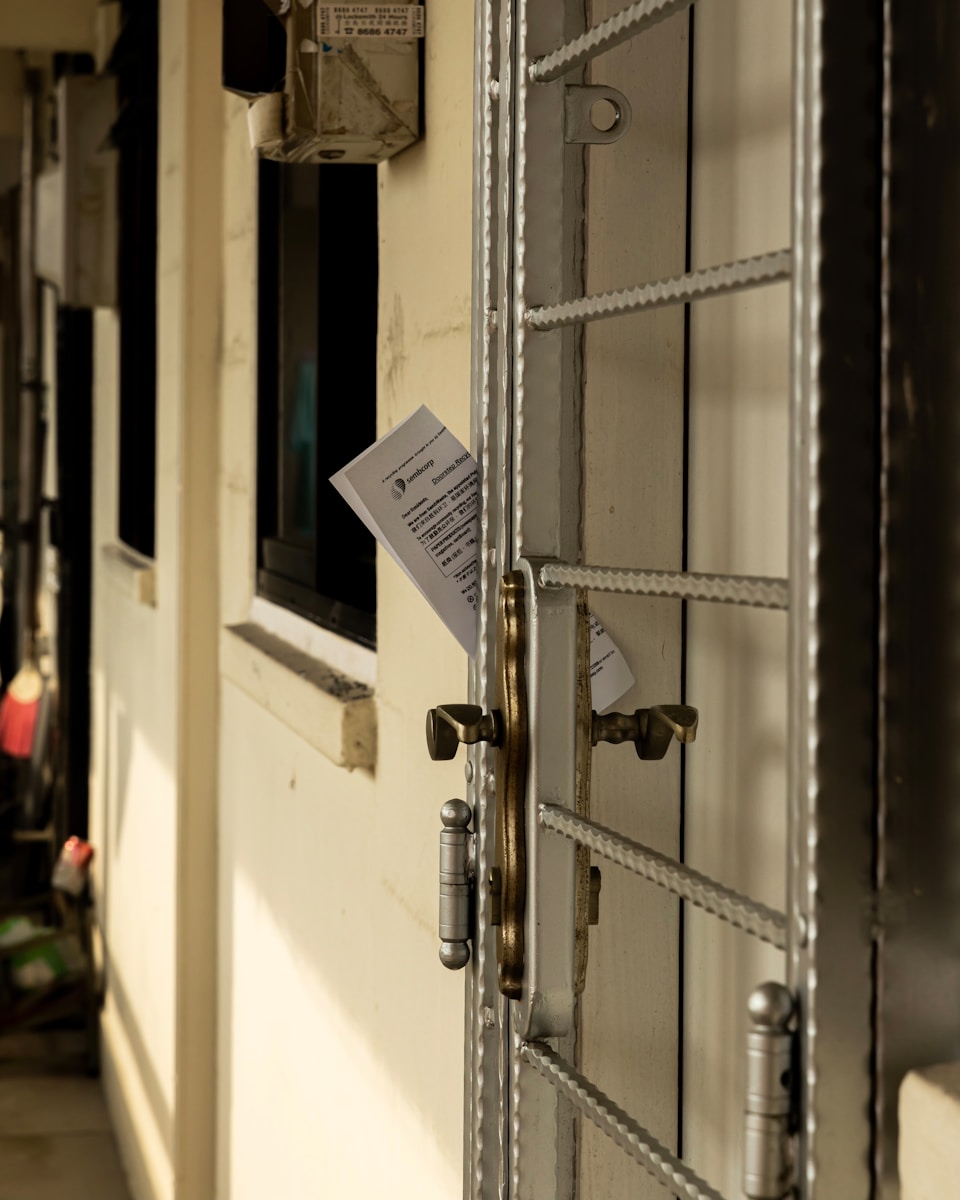Investing in properties can be a thrilling journey, yet the prospect of cheap HDB commercial properties can come with its share of risks. I’ve had my fair share of experiences in this domain, and I would like to share some insights based on what I’ve witnessed.
Key Takeaways:
- Hidden Costs: Many buyers rush into purchasing cheap properties without considering the additional costs associated with them. For instance, I once invested in an HDB property that was particularly low-priced. However, I soon discovered that the property required extensive renovations, which ultimately cost me $30,000. What initially seemed like a bargain transformed into a financial burden as I had to factor in these hidden expenses.
- Quality of Tenants: A low purchase price can attract less desirable tenants. In my personal experience, I acquired a cheap HDB unit that had a high vacancy rate due to its location. The few tenants I eventually secured were often unreliable, leading to frequent disruptions. The lack of a stable tenant base can significantly impact cash flow and overall profitability.
- Resale Value Concerns: Cheap properties often come with questionable resale potential. I faced this challenge when attempting to offload a low-cost HDB commercial property. Despite improvements, the property’s value did not appreciate as anticipated, primarily due to its initial low pricing. This situation taught me that sometimes paying a premium can lead to better long-term investments.
The allure of cheap HDB commercial properties might draw one’s attention when considering investment opportunities. While the price may seem enticing, my experiences have taught me that temptation can often lead to significant pitfalls. Here are some insights based on personal encounters in property investment.
Key Takeaways:
- Hidden Costs: I once purchased a low-cost HDB commercial property only to find that the refurbishment costs exceeded my initial budget by $20,000. While the initial price appeared to be a bargain, I quickly learnt that maintenance fees and renovation expenses can significantly affect profit margins.
- Location Risks: In another instance, I acquired a cheap unit in a less desirable area, believing I could revitalise its appeal. After several months, foot traffic remained alarmingly low, and I found it challenging to attract long-term tenants. The property’s location proved paramount, and what seemed a wise investment ended up being a costly mistake.
- Regulatory Challenges: Navigating the legalities surrounding HDB properties can be daunting. I faced unexpected restrictions on subletting my commercial property, constraining my ability to generate rental income. These regulatory hurdles often accompany lower-priced properties and can erode overall returns.
To conclude, while cheap HDB commercial properties may attract attention, it is crucial to consider the broader implications of such investments. My experiences clearly indicate that what may appear as a financial advantage could easily transform into a burdensome reality if not approached with caution and diligence.
The Danger Of Cheap HDB Commercial Property
In my journey as a property investor, I’ve often encountered the allure of low-priced HDB commercial properties. The initial excitement of finding a seemingly unbeatable deal can be intoxicating, especially when you’re eager to expand your portfolio. However, I’ve learnt that these bargain prices often mask hidden complications that can turn an investment dream into a nightmare.
The Allure of Low Prices
Cheap HDB commercial properties can seem like a golden opportunity. The prospect of acquiring a space at a fraction of its market price is tantalising. I recall my first encounter with a low-priced property; it was positioned in a bustling area, and the price was significantly lower than my expectations. I was tempted. Nevertheless, as I discovered, such deals often come with strings attached.
Temptation to Invest in Cheap Properties
When presented with a cheap property, the temptation to invest can be strong. I found myself daydreaming about the profits I could reap, only to later realise that excitement clouded my judgement. You may think you’re securing a steal, but it’s crucial to approach with caution and due diligence before committing your funds.
The Hidden Costs of Bargain Deals
Low-priced HDB commercial properties can lead to unforeseen costs that diminish their financial appeal. I encountered situations where the maintenance fees were exorbitantly high, and crucial repairs required immediate attention. These added costs can swiftly turn what seemed like a beneficial investment into a financial burden.
In my experience, hidden costs often emerge in the form of overdue maintenance, zoning issues, or even the need for renovations to bring a property up to standard. For instance, I once purchased an HDB commercial space that appeared well-maintained on the surface, only to realise weeks later that the plumbing system was failing. This unexpected expense had a significant impact on my budget. I urge you to always thoroughly assess any property, look into its history, and factor in potential hidden costs before making a decision. Investing wisely is preferable to succumbing to the allure of a low price tag.
The Financial Pitfalls of Cheap HDB Commercial Property
Investing in cheap HDB commercial property can seem enticing, but the financial pitfalls are numerous. I have found that, while the initial outlay may be low, the subsequent costs can easily spiral. You may face unexpected repairs, management fees, or a lack of tenants due to the property’s undesirable location. It’s crucial to evaluate the long-term financial implications before committing to such investments, as they may not yield the returns you expect.
The Hidden Costs of Low Prices
When I first looked at cheap HDB commercial properties, I was blinded by the initial price. However, I quickly realised that there are hidden costs that can significantly affect your profits. From ongoing maintenance to compliance with local regulations, these expenses can add up. It’s vital to conduct thorough due diligence to uncover these hidden costs before making your purchase.
My First Investment: A Cautionary Tale
When I purchased my first cheap HDB commercial property, I thought I was making a savvy investment. However, I soon learnt that the attractive price tag did not reflect the reality of the situation. The building required extensive repairs, which set me back thousands of dollars, and while I believed it would be easy to fiobtainenants, the location turned out to be a major deterrent. This experience taught me that low prices can often come with significant risks.
Reflecting on my first investment, I was enthusiastic yet naïve. The appealing low price led me to overlook critical factors like location viability and property condition. My initial perception of a great deal turned into a financial burden as unforeseen expenses necessitated substantial repairs and I struggled to attract reliable tenants. This situation reinforced the lesson that not all bargains are worth pursuing, and thorough research is indispensable in property investment.
Investing in cheap HDB commercial property might seem like a sound financial decision, but my personal experiences have taught me otherwise. There are significant risks involved, which often manifest in unexpected ways. In this article, I’ll explore some of the real-life consequences that can plague investors in this market.
Real-Life Consequences That Haunt Investors
Many investors, including myself, have faced the grim aftermath of poor decisions in cheap HDB commercial properties. These consequences can lead to financial strain, lost opportunities, and an overwhelming sense of regret. Learning from these experiences can help you avoid making the same mistakes I did.
Case 1: The Shocking Maintenance Costs
One of the most startling revelations for me was the ongoing maintenance expenses that come with cheap HDB properties. What appeared to be an affordable investment quickly turned into a costly burden, as I found myself dealing with unanticipated repairs and upkeep that depleted my financial reserves.
Case 2: Unexpected Regulatory Challenges
During my investment journey, I encountered several unexpected regulatory challenges. These issues not only delayed my plans but also added unexpected costs to my investment. Navigating through the complexities of regulations proved to be more difficult than I initially anticipated.
For instance, I once invested in a property that I believed met all necessary requirements. However, I soon learnt of new regulations that mandated extensive modifications to comply with updated safety standards. The unexpected need to invest an additional $20,000 on electrical system upgrades put me in a difficult situation, underscoring the importance of staying informed about the regulatory landscape before making an investment.
When I first entered the market for HDB commercial property, I was drawn to the seemingly great deals available. I quickly realised, however, that the allure of discounted prices often masked underlying issues, leading to complications I had not anticipated.
Market Trends: Unpacking the Myth of Bargains
In today’s property market, it is easy to be seduced by the prospect of bargains. However, the idea that cheaper prices guarantee value or potential for profit is misleading. I’ve come to understand that many factors influence property value, and discounts often highlight deeper market trends that can lead to poor investment decisions.
The Draw of Discounted Opportunities
The promise of discounted opportunities can be compelling. When I stumbled upon HDB commercial properties well below market value, the excitement became overwhelming. However, I soon learnt that these discounts often arise from higher-than-normal vacancies, poor locations, or structural issues that would require additional investment.
Real-Life Consequences of Acting on Impulse
Acting on impulse can have significant repercussions. In one instance, I hastily purchased a property that seemed like a steal, only to discover hidden defects that required extensive repairs. This impulsivity not only drained my finances but also delayed my plans for further investments.
Emotions often cloud our judgement when chasing bargains. In that particular case, I overlooked vital due diligence steps, convinced by the low price alone. Consequently, the property sat empty for months while I wrestled with unforeseen costs. This experience served as a stark reminder of the importance of thorough research and a cautious approach, particularly when dealing with high-stakes HDB commercial properties.
Throughout my experience in the real estate market, I’ve come to learn that acquiring cheap HDB commercial properties can lead to unforeseen challenges. While the initial affordability may seem enticing, I have encountered numerous instances where hidden costs and structural issues quickly eroded my profits. My first venture into this market saw me purchase a low-cost unit that later revealed damp issues, leading to hefty renovation expenses that significantly impacted my overall return on investment.
The Danger Of Cheap HDB Commercial Property: Critical Oversights in Due Diligence
One of the most common pitfalls I have observed is the lack of thorough due diligence when considering these properties. It is necessary to investigate all aspects before committing to a purchase. I’ve seen individuals overlook critical factors, resulting in costly surprises down the line.
Importance of Comprehensive Property Inspections
In my experience, a comprehensive property inspection is not merely a box to tick; it has salvaged potential investments for me. By engaging professionals to scrutinise the property, I have been able to identify issues that could have led to expensive repair bills, ensuring I made informed decisions before finalising a deal.
Failing to Assess Location and Market Trends
Over the years, I have experienced firsthand how neglecting to evaluate location and market trends can significantly affect the profitability of your investment. I once acquired a low-priced property in a declining area, thinking its low cost was an opportunity. However, the market’s downturn led to a significant decline in demand, leaving me with a property that was difficult to rent out.
To further elaborate, understanding location dynamics is necessary when considering HDB commercial properties. I underestimated the financial consequences of situating my property in an area with declining interest and low foot traffic. Researching demographic trends and competing businesses can offer invaluable perspectives on the property’s future value, enabling you to make smarter investment decisions. With the right information, you can avoid the trap of purchasing in an area that won’t appreciate or attract tenants.
The Danger Of Cheap HDB Commercial Property
Investing in low-cost HDB commercial property may seem like an attractive proposition, but it often comes with unforeseen pitfalls that can undermine your investment. My experiences in this domain have highlighted the dangers of prioritising pricing over quality and due diligence.
The Unseen Risks in Low-Cost Acquisitions
Low-cost acquisitions can expose you to various risks that may not be immediately apparent. I have faced situations where the initial savings were overshadowed by higher maintenance expenses, regulatory complications, and tenant issues, which transformed what appeared to be a bargain into a burdensome financial commitment.
Structural and Legal Issues to Beware
When purchasing inexpensive properties, structural and legal issues can arise unexpectedly. In my case, I encountered hidden flaws in the building’s structure that required significant funds to rectify, alongside legal disputes concerning ownership that further complicated the situation.
A Personal Encounter with Regulatory Hurdles
During my journey, I stumbled upon regulatory hurdles that made my experience incredibly taxing. These challenges stemmed from misunderstandings of compliance requirements and regulations surrounding HDB properties, which can be complex and often vary by location.
One particular instance left me grappling with unexpected zoning restrictions that prohibited my intended use of the property. Although I believed I had conducted thorough research, I later discovered that I had overlooked local by-laws. This oversight not only delayed my project but also incurred additional costs as I scrambled to rectify the situation, leaving me with a clear example of the importance of comprehensive due diligence when investing in cheap properties.
As I initiated my journey into the world of commercial property investment, I was eager to locate affordable opportunities. I soon discovered that the danger of cheap HDB commercial properties is all too real. Often, seemingly attractive price tags were accompanied by hidden challenges, leading to unforeseen financial burdens.
A Cautionary Tale from My Investment Journey
In my quest for a bargain, I purchased a cheap HDB commercial unit, convinced it was a golden opportunity. However, I quickly faced challenges with maintenance issues and low foot traffic, which plunged my investment into turmoil, teaching me a valuable lesson about the so-called “too desirable to be true” properties.
How I Learned the Hard Way
With my initial investment in cheap HDB commercial properties, I quickly realised that my dream was turning into a nightmare. The potential revenue was disappointing, and the constant repairs amplified my financial strain. I learnt that thorough research and due diligence are paramount before entering the world of commercial real estate.
Steps I Took to Recover My Losses
To mitigate my losses, I devised a strategic plan focusing on prudent asset management. I altered my marketing approach, targeting niche businesses that suited the area’s demographics. Additionally, I sought professional advice, which helped me renegotiate leases and improve tenant retention.
I actively engaged with local businesses to create partnerships, promoting joint events that attracted more customers. Investing in targeted renovations increased the property’s appeal, which in turn attracted better tenants. By employing these strategies and continuously seeking expert guidance, I was able to turn my investment around and make it profitable again despite my earlier missteps.
Investing in HDB commercial properties can present an alluring opportunity, particularly when you come across listings that appear excessively attractive. However, the candid danger of cheap options can quickly reveal itself as I probe deeper into this market. I’ve encountered numerous instances where the allure of lower prices masked potential issues, making it imperative to conduct thorough research before diving in.
The Danger Of Cheap HDB Commercial Property: Deceptive Market Practices
When exploring the world of cheap HDB commercial properties, you must be cautious about the fine print. Many listings might appear appealing at first glance; however, hidden clauses often reveal a different narrative. I found myself navigating a minefield of legal jargon and obscure fees that seemed to multiply unexpectedly, leaving me overwhelmed and questioning my decision.
Common Red Flags in Cheap Listings
As I’ve navigated the market, certain red flags have consistently arisen in cheap listings. Phrases like “urgent sale” or “motivated seller” often indicate underlying issues. Furthermore, the absence of comprehensive property descriptions and insufficient photographs may indicate hidden issues. As I scrutinised these listings, it became apparent that a thorough inspection was necessary to safeguard my interests.
An Experience with Misleading Advertisements
One of my most enlightening experiences with misleading advertisements was a listing for a low-priced HDB commercial space that seemed perfect at first. The photos portrayed a modern, well-maintained unit in a busy location. However, upon viewing the property, I found that the images were from years ago and did not accurately depict its current state of disrepair. The seller had cleverly omitted information about substantial maintenance issues, which led me to realise that the true costs far exceeded the initial attractive price. This experience demonstrated the deceptive nature of enticing advertisements.
y. I had assumed the property was a sound investment based solely on its appealing price and visuals. Once I visited the site, the reality became apparent: peeling paint, outdated facilities, and extensive repairs required. This underscored the importance of verifying not only the pricing but also the authenticity of the offered property. It is crucial to conduct proper due diligence and seek transparency to prevent deception in the competitive commercial property market.
The Danger Of Cheap HDB Commercial Property
Having ventured into HDB commercial property investments, I have encountered a range of experiences, both positive and negative. Initially lured by the appeal of bargain prices, I learnt the hard way that cheap properties often hide latent issues. A retail unit in a less desirable area was one of my first purchases and seemed like a steal at $250,000. Unfortunately, its poor location and lack of foot traffic resulted in me struggling to locate tenants, leading to significant losses over time. This experience underscored the importance of thorough due diligence when considering such investments.
Strategies for Making Wise Property Investments
To overcome the obstacles associated with investing in property, it’s necessary to adopt effective strategies. I find that focussing on long-term potential, understanding market trends, and prioritising quality over mere cost significantly enhances investment outcomes. Educating yourself and seeking guidance can also transform your property investment decisions, ensuring you make informed choices that lead to rewarding results.
Prioritising Quality Over Price
In my early days of investment, I made the common mistake of selecting properties based solely on price. However, I quickly realised that prioritising quality could lead to better returns. Investing in a well-maintained, high-demand area, despite a higher initial cost, has proven more beneficial than merely chasing lower-priced options. Quality investments are more likely to attract reliable tenants and appreciate in value over time.
Seeking Expert Advice for Informed Decisions
Consulting with property experts has been a game changer for my investment journey. By leveraging their knowledge and insights, I’ve been able to navigate the complexities of the property market more effectively. Their expertise can provide you with valuable information on market trends, potential growth areas, and investment risks, ensuring your decisions align with your financial goals.
In my experience, seeking expert advice is not just prudent; it’s necessary. I found that engaging with real estate agents, financial advisors, and property analysts allowed me to uncover opportunities I might have otherwise overlooked. By harnessing their insights, you can gain a competitive edge, make educated choices, and ultimately secure properties that not only meet immediate needs but also contribute to long-term wealth accumulation.
In my journey exploring HDB commercial properties, I’ve encountered various pitfalls associated with opting for cheaper options. At first, a low-priced unit drew my attention, as it appeared to be an excellent value. However, I soon discovered underlying issues such as maintenance neglect and declining foot traffic. This experience highlighted the importance of assessing not just the price but the overall value and potential of the property.
Strategic Alternatives to Cheap HDB Commercial Properties
Instead of settling for cheap HDB commercial properties, consider focusing on strategic alternatives that offer better long-term value and stability. Exploring options like established areas, properties with excellent amenities, or those with strong rental demand can yield greater returns. As I’ve experienced, investing a little more initially often pays off in terms of capital appreciation and tenant satisfaction.
Focusing on Quality over Cost
When evaluating commercial properties, valuing quality over cost is important. By investing in a well-maintained and strategically located unit, you enhance your chances of attracting reliable tenants. I learnt that cheaper properties may seem appealing, but they often come with hidden expenses and risks that can outweigh potential savings.
Lessons Learned: How to Find Value in the Market
In my search for valuable investments, I’ve come to realise that finding true value in the market requires thorough research and analysis. This includes assessing local market trends, understanding tenant needs, and scrutinising the property’s condition. By adopting a well-rounded approach, you can identify opportunities that promise long-term benefits rather than immediate savings.
Through my experiences, I’ve found that valuing due diligence is significant in determining the true worth of a property. I examined factors such as upcoming developments, transport links, and community plans, which can influence future property value. By focusing on these elements rather than just the initial purchase price, I discovered properties that met my criteria and promised a solid return on investment.
Summing up
Ultimately, my experiences with cheap HDB commercial properties have brought to light significant risks that one should not overlook. I once invested in a low-cost unit, only to face mounting maintenance issues and a lack of tenant interest, resulting in financial strain. It’s tempting to chase bargains, but I’ve learnt that price often reflects quality. Before you make a similar decision, consider the long-term implications. Choose wisely and understand the potential pitfalls in order to safeguard your investment and ensure sustainable growth in your property portfolio.
Hence, based on my experiences, I have witnessed the pitfalls associated with cheap HDB commercial property. A few years ago, I invested in a seemingly affordable space, only to face significant renovation costs that were not initially apparent. I also observed others struggle with high vacancy rates due to poor location and lack of amenities. These instances taught me that the initial savings can quickly disappear, leaving you with financial burdens. Thus, assessing all aspects, not just the price, is paramount for ensuring a sound investment in the commercial property market.
The Danger Of Cheap HDB Commercial Property
Q: What should I consider before purchasing a cheap HDB commercial property?
A: Before making a purchase, it’s vital to thoroughly assess the location and the surrounding infrastructure. For instance, I once viewed a cheap HDB commercial unit in a relatively quiet area. Although the price was appealing at $100,000, the foot traffic was minimal, which led to poor business performance. Additionally, consider the condition of the property; a low price might be an indication of deferred maintenance. I invested in a property that seemed cheap at $80,000, only to discover costly repairs were necessary shortly after the purchase.
Q: Are there hidden costs that come with cheap HDB commercial properties?
A: Yes, there can be various hidden costs associated with cheap HDB commercial properties. In my experience, regulatory fees and renovation costs can quickly accumulate. For example, I acquired a cheap property for $75,000, but upon initial inspection, I had to pay an additional $10,000 for compliance with safety regulations. Furthermore, sometimes these properties may come with unpaid taxes or maintenance fees that only surface post-purchase, turning what seemed like a fantastic deal into a financial burden.
Q: Can cheap HDB commercial properties impact my business long-term?
A: Absolutely, the choice of property can directly affect your business’s success in the long run. I owned a commercial space bought for $90,000, which had an attractive price but turned out to be in a declining market. Sales gradually dropped as nearby businesses closed down, and ultimately, it became challenging to attract customers. A cheap property might save you money initially, but if it hinders customer access or lacks amenities, it can negatively affect your business growth and reputation, leading to long-term ramifications.





